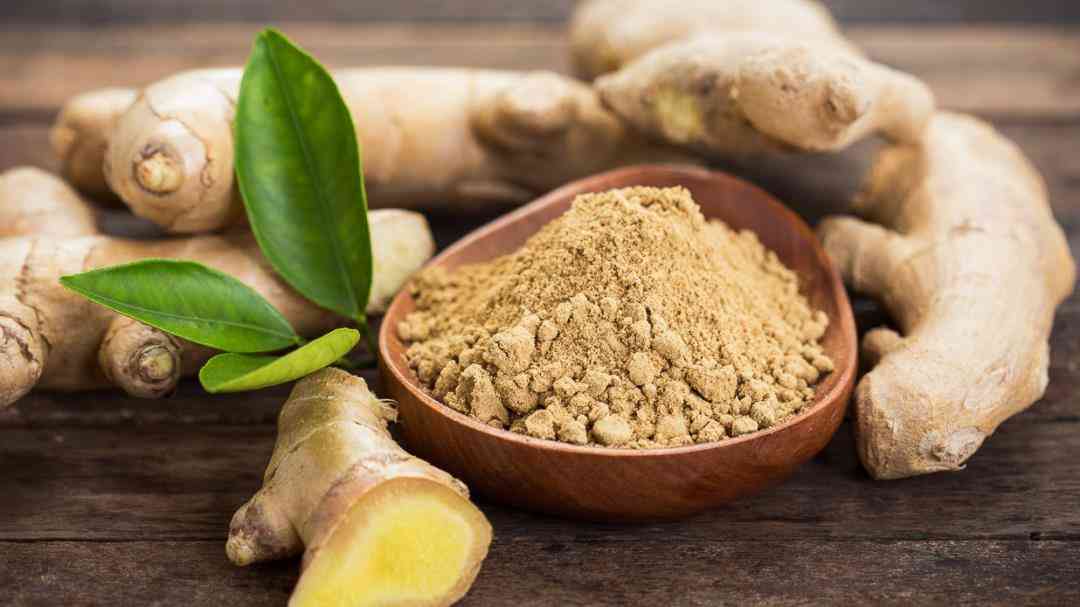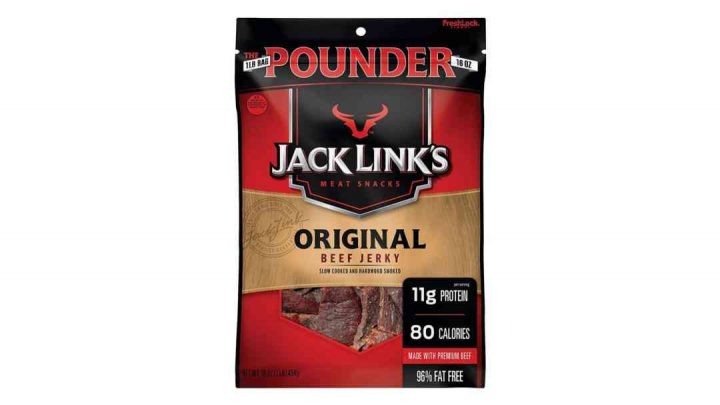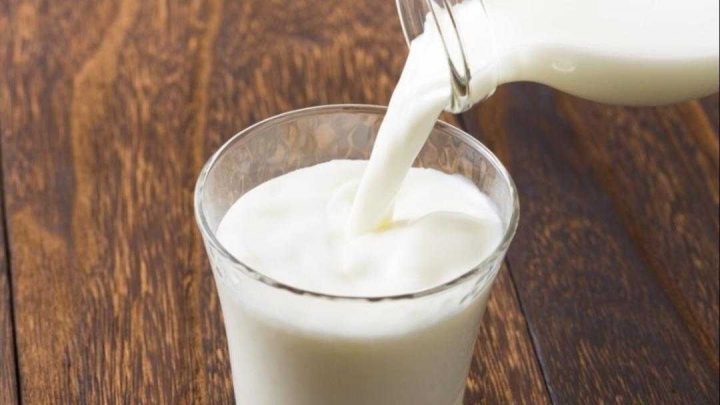Ginger is a root that has been used in traditional Chinese and Indian medicine for over 2500 years.
It is low in fat, cholesterol-free, and contains a wide variety of vitamins and minerals, including Vitamin C, Folate, Magnesium, Calcium, and Phosphorus, making it a great addition to your healthy lifestyle.
We all know that ginger is liked to a lot of health benefits. However, if you are following a keto diet, then you have to wonder if you can use this superfood to add some flavor to your meals.
Is Ginger Keto-Friendly?
A typical serving of ginger (11g) only contains 2g of net carbs which makes it keto-friendly. It is a very strong tasting spice which makes it hard to eat in large amounts. Ginger will not kick you out of ketosis as long as you are mindful of your serving sizes.
Ginger is often used in small amounts for tea or for flavorings in savory food. A small amount of ginger goes a long way because of its strong taste.
Ginger is also known to reduce blood sugar levels and regulate insulin response. Keeping blood sugar and insulin levels low is important if you want to reach ketosis.
Many people like the flavor of ginger and use it to calm an upset stomach, aid in digestion, and even use it to help boost their immune system.
So if you are thinking of incorporating ginger on your keto diet, go right ahead and reap the health benefits of this superfood!
Ingredients
- 2 tsp ground ginger
- 2 ⅔ cup of blanched almond flour, finely ground
- ½ tsp ground nutmeg
- ½ tsp cinnamon, nutmeg
- ½ cup unrefined coconut sugar
- ¼ tsp fine Himalayan salt
- ½ tsp keto-friendly baking soda
- 6 tbsp pastured butter, softened
- 3 tbsp keto-friendly maple syrup
- 2 tbsp water
- 1 egg
Steps
- Preheat the oven to 350 degrees. Line a parchment paper into the cookie sheet.

- Mix the dry ingredients into a bowl which includes ground ginger, almond flour, no-carb baking soda, coconut sugar, nutmeg, cinnamon, and salt.
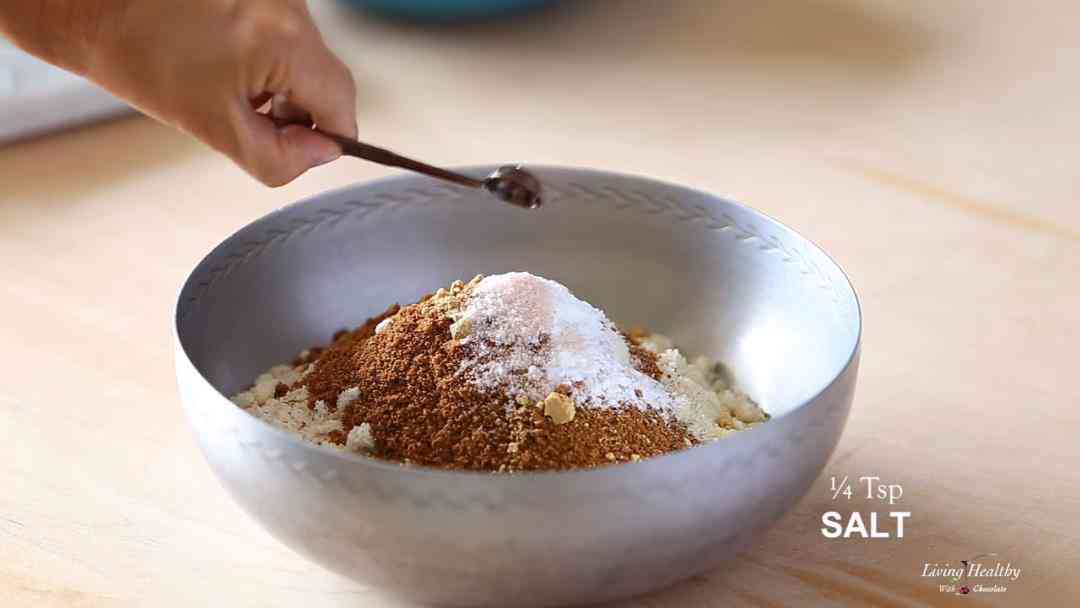
- On a separate bowl, mix the butter, sugar-free maple syrup, and water. Whisk with a handheld mixer or a whisk. Add the egg and whisk again to combine.
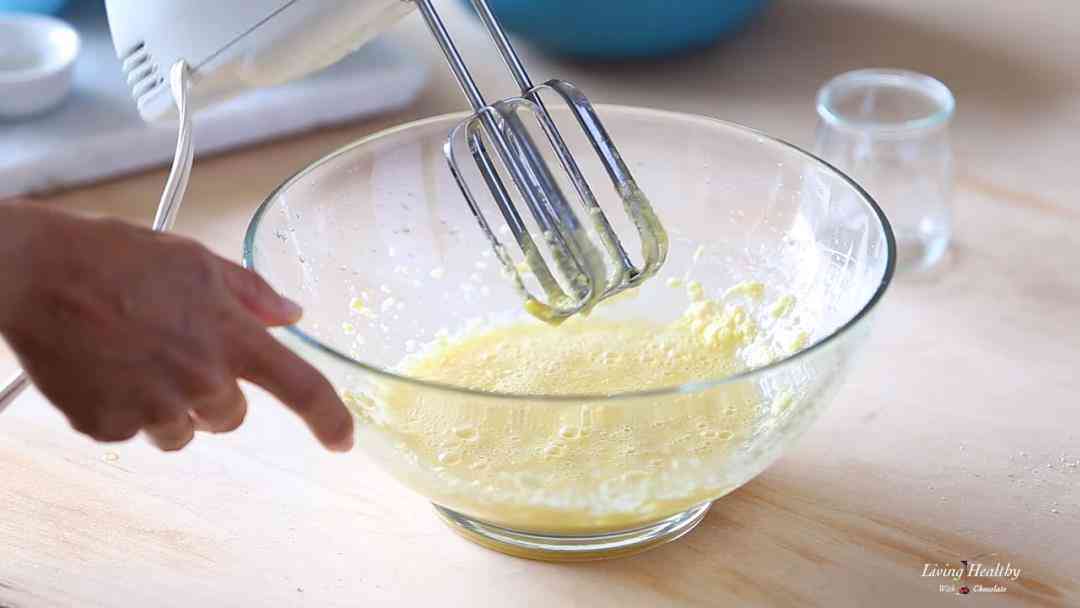
- Combine the flour mixture to the bowl with wet ingredients. Mix everything until it forms into a dough.
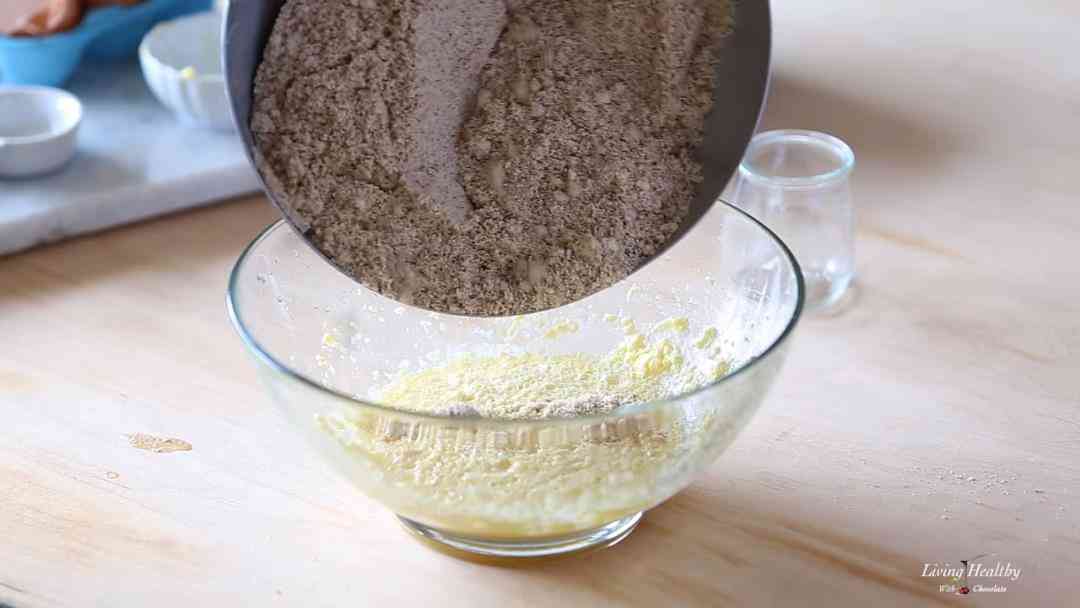
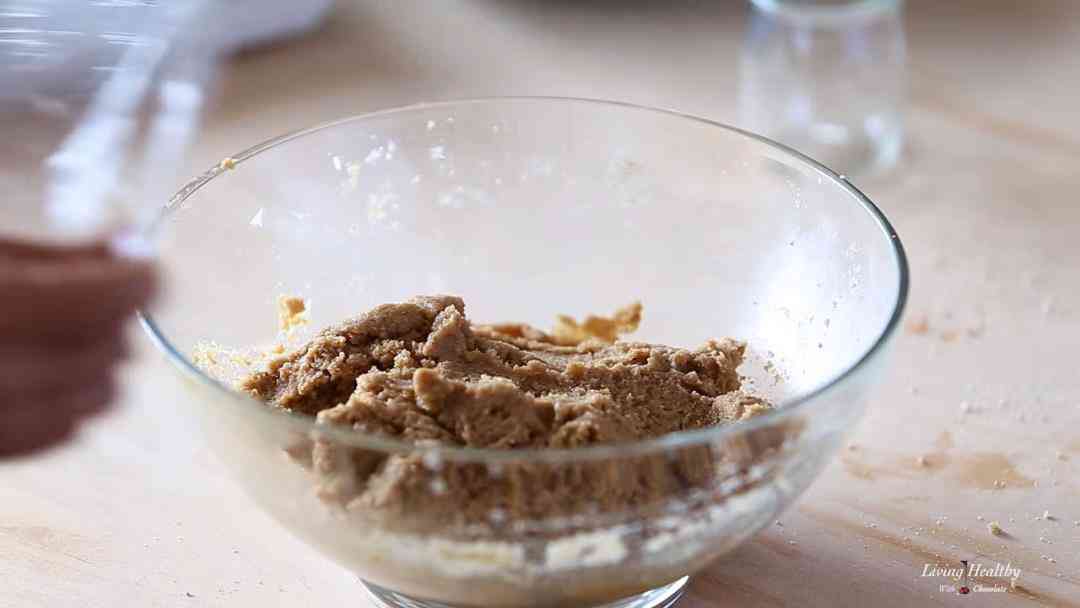
- Cover the mixing bowl with plastic and refrigerate it for 40 minutes to an hour.
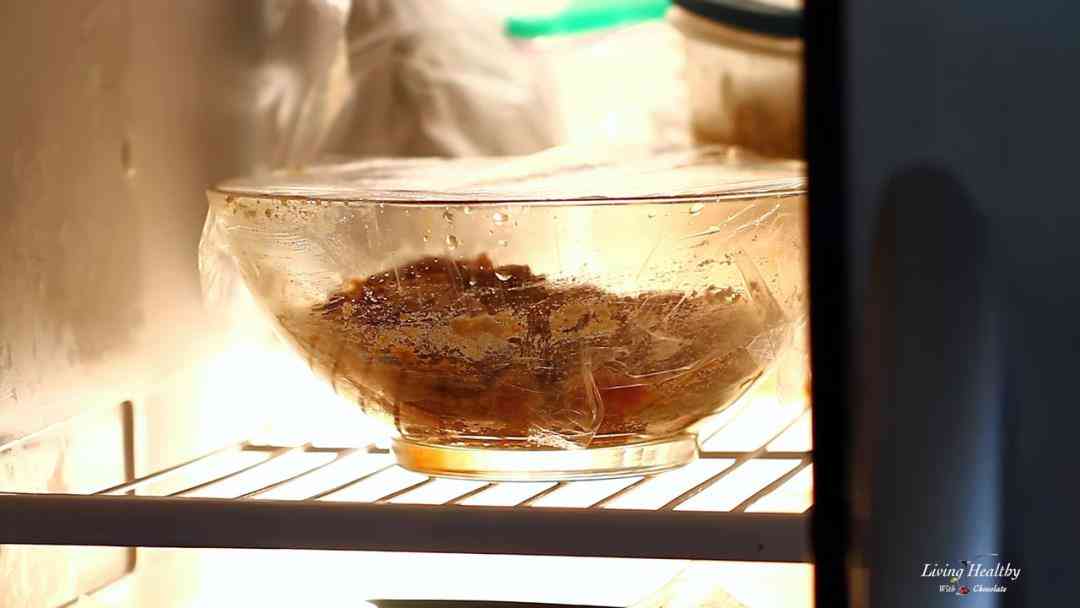
- Roll about 1 ½ tablespoons of chilled dough into balls then flatten each one slightly with your palm.
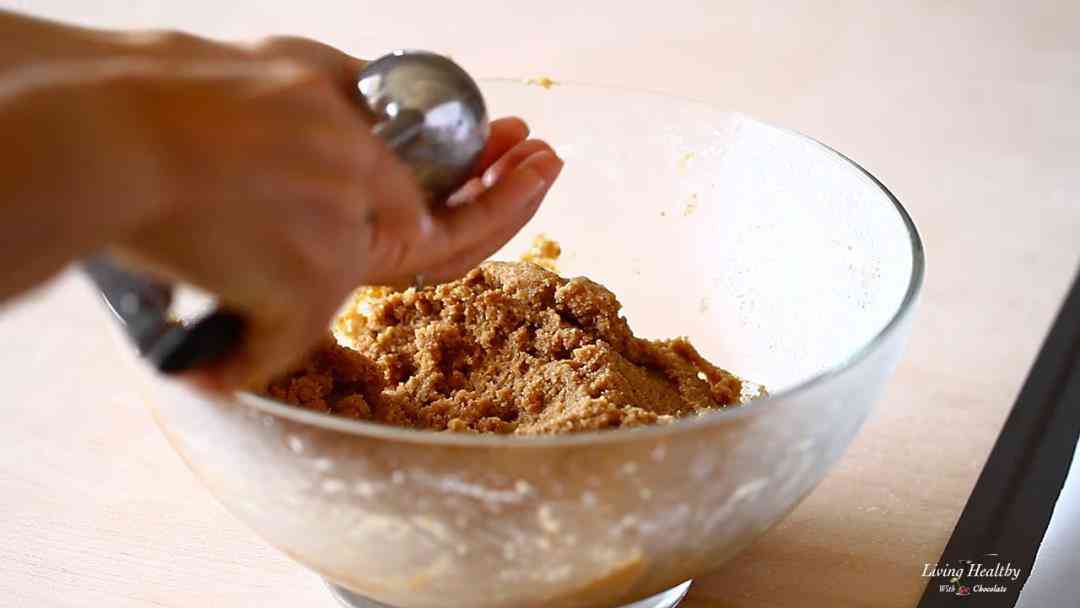
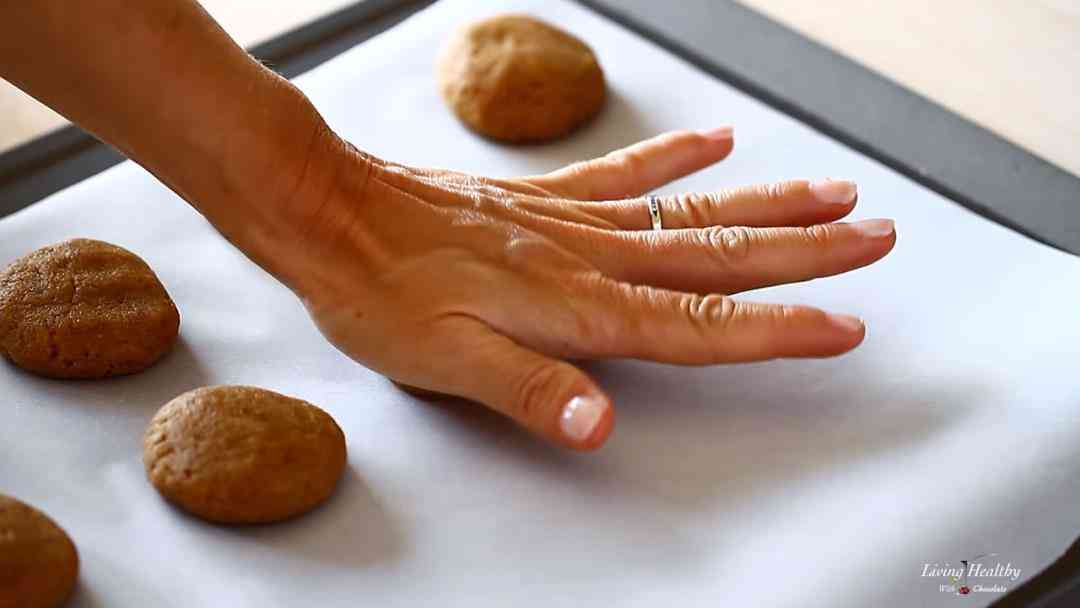
- Bake the cookies for 10 minutes in your preheated oven. Then cool the baked cookies on a wire rack.

- Serve!
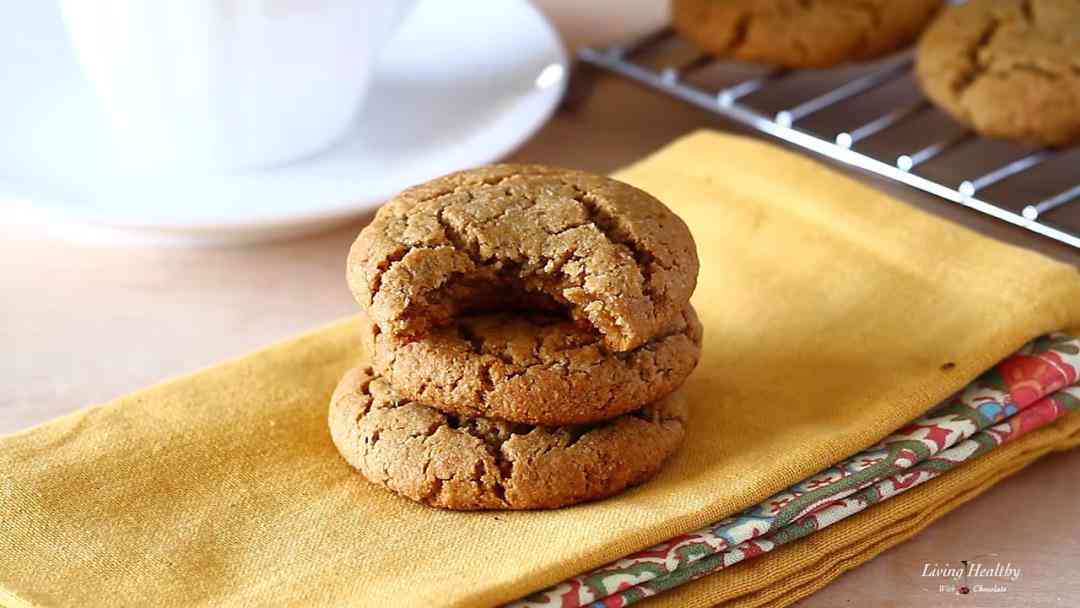
You can check the full recipe video here.
Best Keto Recipes With Ginger
Here are other delicious keto ginger recipes that you can try. Click any of the pictures below for the recipe.

Ginger Lemongrass Salmon 
Ginger-Plum Pork Chops 
Healing Asian Soup with Ginger 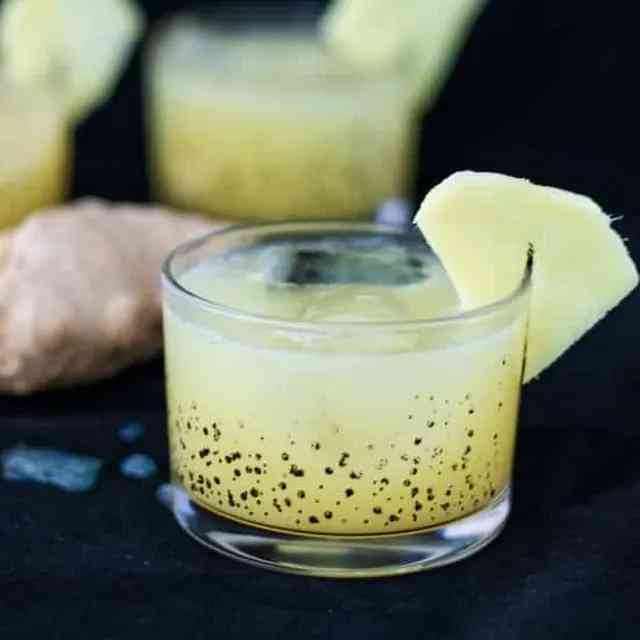
Lemon Ginger Mocktail 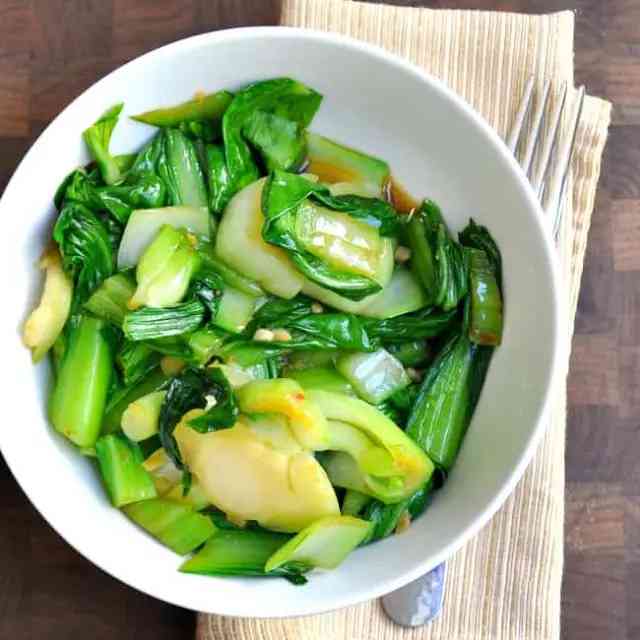
Spicy Sesame Ginger Bok Choy 
Lime Ginger Albacore 
Ginger Turkey Kabobs 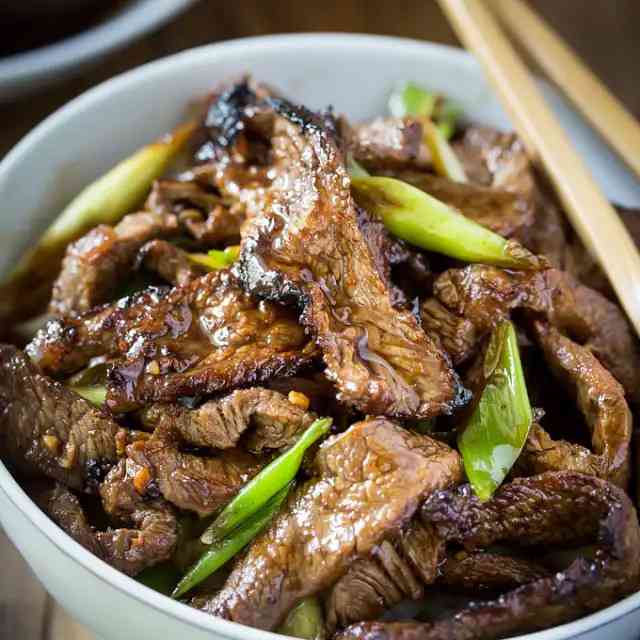
Keto Mongolian Beef with Ginger
Ginger FAQs
The part that we eat is a root. Ginger is a grassy, leafy plant that can grow in one spot for many years (perennial). The edible part is the root, or rhizome, of the plant.
If you are storing fresh ginger, it should be kept in the refrigerator for no more than 2-3 weeks, either in a food-safe container or a paper towel. ginger root is technically a living root, even when it’s harvested, so over time, it could mold or dry out. Ground, dried ginger or preserved ginger can be kept for much longer and will have a “Use By” date on the package.
Ginger has been a “folk remedy” for heartburn for centuries. However, there aren’t any recent studies that can prove or disprove the hypothesis that ginger can be used as a treatment for acid reflux. If you find that it works for you, then go ahead and use it.
Yes, but not directly as a pain reliever. Rather, ginger can be used as an anti-inflammatory, which can help to soothe a sore throat (often caused by inflammation or an immune response to an infection, which can feel painful and scratchy). So, if you have a sore throat, go ahead and enjoy a cup of steeped ginger tea.
For a food to be considered “acidic”, it’s pH would measure less than 4.6 (on a scale from 0-14, 0 being the most acidic, and 14 being the most basic). The pH of ginger is 5.6-5.9, meaning that it’s considered a “low-acid” food.
Ginger can help decrease the time it takes for you to digest your food, and can stimulate the muscles in your digestive system which means that it can help you poop easier.
Some people use ginger as a diuretic, but there isn’t much research to support that it can be used as such. Additionally, it is best to proceed with caution if you are looking to eliminate extra fluid from the body, especially if it’s causing swelling (edema). This could be a serious underlying medical issue, and using diuretics without consulting a medical professional could render serious side effects.
Some research shows that it can lower blood pressure, but not a whole lot on human studies. If you are already taking a blood pressure medication, consuming large amounts of ginger or ginger supplements may not be recommended.
A recently published meta-analysis showed that ginger supplementation helped to reduce body weight, waist-to-hip ratio, hip ratio, fasting glucose and insulin resistance (which would be beneficial for diabetics). However, the dosage was not readily available, so it is unclear how much was given to each patient.
Ginger can have some undesirable side effects, so women with certain health risks should consult their physician before adding ginger to their regimen. However, in a panel of 50 gynecologists, nearly 7 out of 10 stated that they recommend ginger to their patients to help reduce nausea and vomiting during pregnancy. So, if your gynecologist and physician say that it’s OK, then go ahead!
There are certain compounds in ginger called gingerols and shogaols, which are found in the fresh and dried versions, respectively. Research is still being done to determine exactly what role these compounds play, but there are theories that these compounds work on serotonin and cholinergic receptors. These are neurotransmitters that are released during conversations between the brain and the intestinal tract (commonly referred to as the gut-brain axis). Side effects of these neurotransmitters include decreased intestinal motility, which could lead to nausea and vomiting. So, that being said, ginger acts on the gut-brain axis by blocking certain nausea-causing compounds.
Yes, ginger can be frozen. However, the texture might be altered slightly once it is defrosted. But, it’s a great way to extend its shelf life; the USDA states that you can freeze it for up to a year.
Yes, consuming too much ginger might cause heartburn. One article stated that taking more than 4 grams of ginger as a supplement can cause heartburn, especially if you already have acid reflux.
Research shows that ginger is anti-bacterial and anti-fungal (in some instances). Ginger could help to reduce the “bad” bacterial overgrowth in the colon that causes gas. It can also help to inhibit the growth of fungus that produces aflatoxins (cancer-causing toxins).
Ulcers are caused when the lining in the stomach or gastrointestinal tract is irritated with naturally occurring acids. They can also appear with repeat NSAID use or overgrowth of bacteria (H. Pylori). Animal studies show that ginger can help reduce the growth of H. Pylori, reducing the severity of symptoms of ulcers. However, there are limited human studies regarding this subject.
No, ginger shouldn’t make you sleepy and hasn’t been proven to be used as a sleep aid. But, if you take high doses, it might cause decreased heart rate, which might make you feel calmer, and indirectly feel sleepy.
No, unless you have an intolerance to ginger, it shouldn’t cause gas. Studies show that it can actually help to reduce gas by increasing gastric motility and reducing gas-forming bacteria in the gut.
No, ginger does not need to be peeled. It’s like eating the skin of a potato or carrot (since it’s a root). If you are going to eat the skin, just make sure it’s washed and doesn’t have any moldy or dark spots.
Ginger should not prevent you from sleeping since it isn’t considered a stimulant it and doesn’t contain caffeine. Some people might feel energized when drinking ginger tea or consuming ginger, but it could be because of the spicy, tasty flavor!
Ginger is considered a low oxalate spice, with 1.6mg of oxalates per 100 grams. So, if you are trying to adhere to a low oxalate diet, small amounts of ginger would be allowed in your diet.
There is some evidence (in both animal and human studies) that 3 grams of ginger helped to lower LDL (bad) cholesterol and triglycerides, suggesting that ginger could be used in place of traditional, cholesterol-lowering medications (statins).
There is alternative medicine research that has been published showing that taking ginger tea can help reduce symptoms of vertigo (an inner ear imbalance) better than some other methods, like repositioning. Consult your physician if you are experiencing vertigo or any symptoms; dizziness, nausea, and balance issues.
Ginger does not have capsaicin, but it’s “spicy” compound, gingerol, has a structure that is very similar to capsaicin!
Many natural or alternative medicine websites claim that ginger can induce labor, but there is no scientific evidence that ginger will induce labor.
There is sulfur in garlic (naturally occurring), and it can interact with the enzymes produced by the garlic, turning the mixture a greenish color. It is safe to eat, so don’t worry. Unless you smell it and it smells sour, musty, or moldy, it’s safe to use!
It depends. If you are steeping ginger in hot water, then no. If you are drinking a tea that is a blend of ginger root with tea leaves, then yes, possibly. Tea leaves contain tannins, so if your tea contains those leaves, then you are likely consuming tannins.
Yes, ginger contains antioxidants. Gingerol, a relative of capsaicin and piperine, is the main compound in ginger and has been shown to exhibit powerful antioxidant properties.
Some studies show that ginger supplementation caused increased heat production in the body (thermogenesis), which may help to burn more calories. However, it has not been scientifically proven that ginger speeds up metabolism.
While this is not a scientifically proven fact, one study showed that ginger supplementation did help to reduce menstrual bleeding in a small group of women. Its anti-inflammatory properties might help to reduce hormonal release that causes heavy bleeding. However, more research is likely needed in this area.
While ginger may not be able to cure diabetes, one study showed that ginger supplementation helped to lower fasting blood glucose and HgbA1C in 22 diabetic patients. So, incorporating ginger into your routine if you are diabetic may be beneficial; however, you should always consult a physician before starting any new supplement.
There are a lot of alternative and natural websites that suggest that drinking ginger tea can help to combat UTIs. Since ginger does help to reduce bacteria, it may help. However, if you do develop a UTI, you should always talk to your doctor to make sure you are treating it properly.
There are a lot of natural and alternative websites that suggest that ginger can whiten teeth, but you’ll be hard-pressed to find scientific research proving that ginger can be used as a teeth whitener. If you are looking for ways to whiten your teeth, check with your dentist first, as they can offer options for safe ways to whiten teeth.
Ginger does not contain lectins. In fact, ginger is included in the allowed foods list for a Lectin Avoidance Diet.
Don’t forget to share this Ginger on Keto guide with your friends!
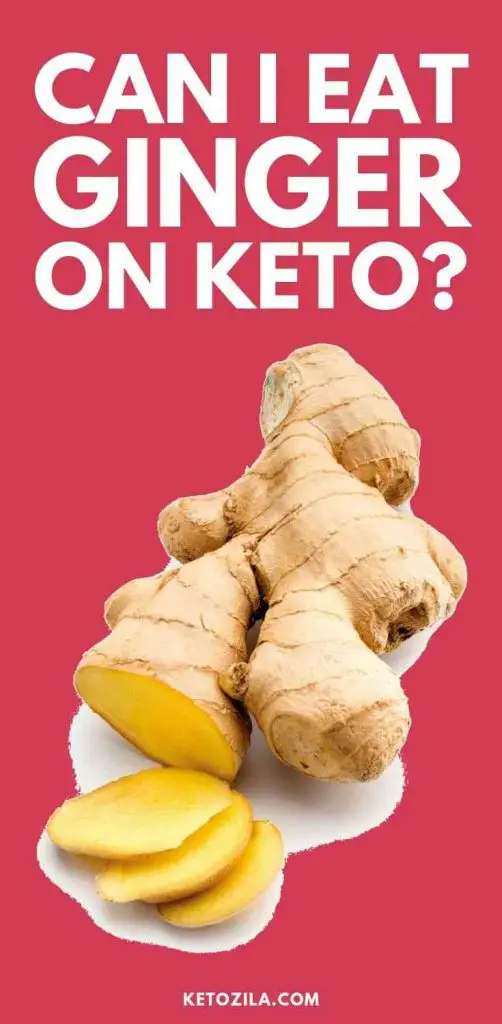
References
- https://www.ncbi.nlm.nih.gov/pmc/articles/PMC6341159/, Ginger’s Effects on Acid Reflux
- https://www.ncbi.nlm.nih.gov/pmc/articles/PMC3665023/, Ginger’s Anti-Inflammatory Effects
- https://www.ncbi.nlm.nih.gov/pubmed/16786906, Effects of Diuretics to Fluid Retention
- https://www.ncbi.nlm.nih.gov/pubmed/30972845, Ginger’s Effect on Blood Pressure
- https://www.ncbi.nlm.nih.gov/pubmed/29393665, Ginger’s Effect on Weight Loss
- https://www.ncbi.nlm.nih.gov/pubmed/10793599, Ginger’s Effect on Nausea
- https://www.ncbi.nlm.nih.gov/pubmed/18814211, Anti-bacterial Effects of Ginger
- https://www.ncbi.nlm.nih.gov/pmc/articles/PMC3763798/, Ginger’s Effect on Ulcers
- https://www.ncbi.nlm.nih.gov/pubmed/22492273, Oxalate Content of Ginger
- https://www.ncbi.nlm.nih.gov/pubmed/29747751, Ginger’s Effect on Lipid Profile
- https://www.ncbi.nlm.nih.gov/pubmed/15630214, Antioxidant Properties of Gingerol
- https://www.ncbi.nlm.nih.gov/pmc/articles/PMC5818945/, Ginger’s Effect on Blood Glucose

